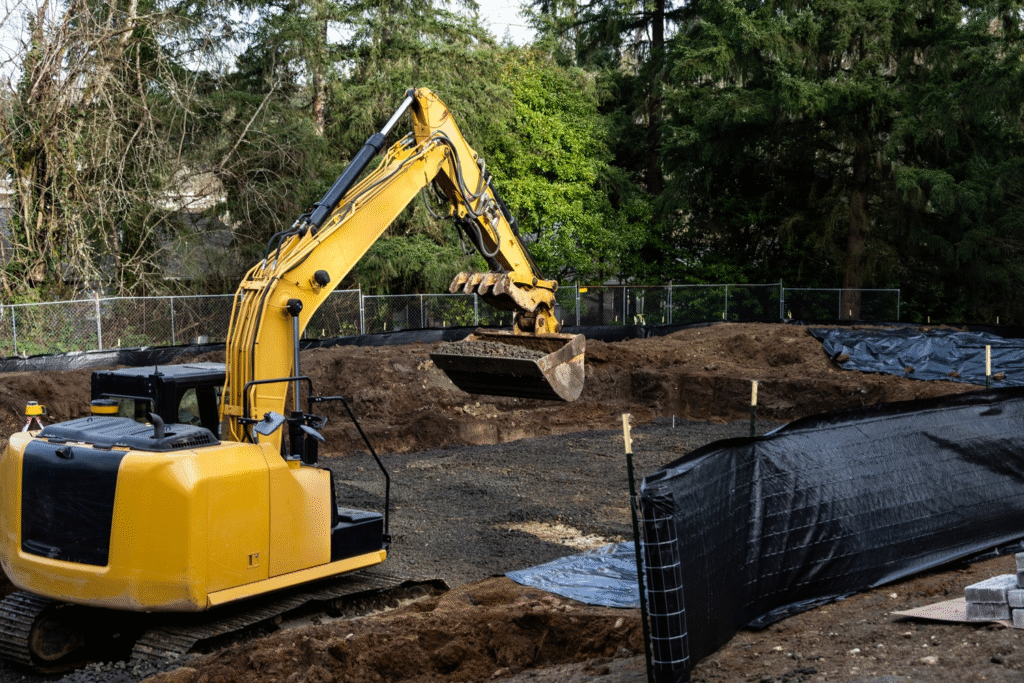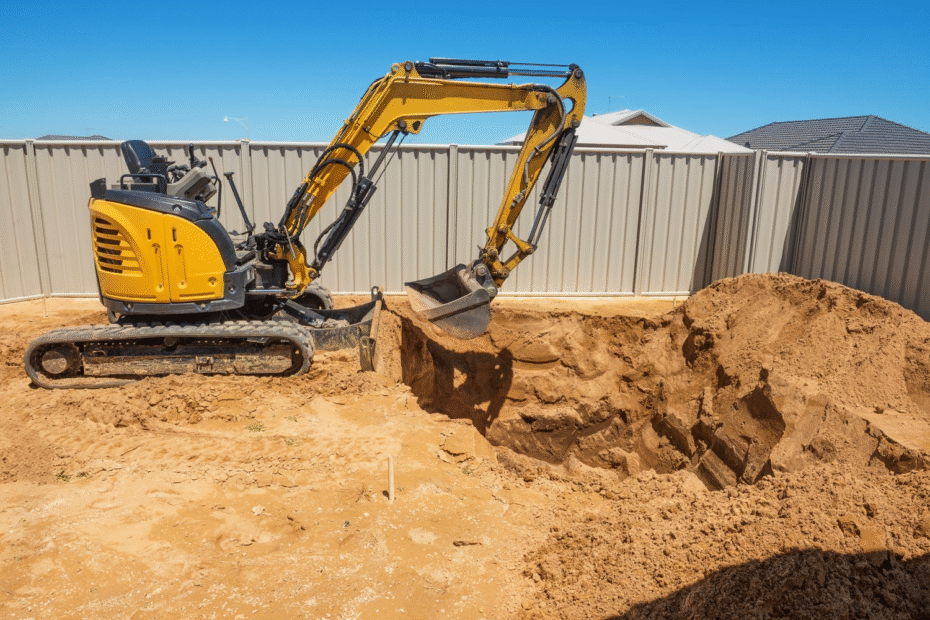Excavation work can be more complex than it looks. At first, it might seem like you only need a machine, someone to operate it, and a patch of land to dig up. But the reality is, even small residential projects often involve more risk and technical planning than homeowners expect. Some tasks are manageable with a rented mini-excavator, but others should be left to professionals who understand the bigger picture. Knowing when to hire a pro can save you from costly mistakes, project delays, and even safety hazards.
When You Need Precision or Civil Drilling
If your project involves drilling into rock or hardened ground to install piers, anchors, or deep footings, it’s time to step back and bring in a specialist. Civil drilling requires a skilled approach that considers depth, angle, pressure, and the ground’s reaction. This type of work supports structural elements, so there’s no room for error. For example, if you’re installing foundation piers for a new garage or room extension, misaligned drilling could compromise stability.
Hiring someone with the right tools and technical knowledge helps prevent failure during or after construction. Experienced contractors also know how to work safely near sensitive areas like retaining walls or neighboring foundations.
When Underground Utilities Are a Factor
If your digging area runs close to utility lines or taps into underground utilities, like water, gas, or sewer, you shouldn’t handle it alone. Professionals use specific techniques and detection tools to locate and avoid utility lines, often coordinating with local utility companies. Hitting a gas or electrical line can put you and your property at risk, and it usually leads to expensive emergency repairs.
Professional excavation contractors follow safety protocols and know the local regulations. They’ll schedule inspections, mark service lines properly, and work in ways that reduce the risk of damage. This isn’t something you want to take chances on.
When Soil Conditions Make the Job Harder
Some soil types are easy to dig. Others create more work than expected. If your property has rocky soil, high clay content, or a water-retaining layer, you’ll likely need specialized excavation equipment and expertise. Soil conditions directly affect how the ground responds to digging, compacting, and backfilling. They can also change the approach to drainage systems and erosion control.
For example, attempting to excavate through compacted clay with basic equipment can delay your timeline and stress the machinery. On the other hand, loose or sandy soil can collapse around your excavation site if not supported correctly. A contractor will assess the soil type and adjust the plan to match it.
When There’s a Slope or Drainage Problem
Land leveling and proper grading aren’t only about appearance. Poor grading causes water to pool around the foundation, which leads to long-term damage and mold. If your yard slopes incorrectly or lacks proper runoff, you’ll want someone who can manage water flow through grading and water management techniques.
Pros use laser levels, grading attachments, and design plans to achieve proper elevation. In many cases, this includes adjusting where water travels during storms and making sure it flows away from the house. Without the right slope, even a new construction project can run into drainage issues.

When You’re Building a Basement or Deep Foundation
Basement excavation or digging for a deep footing calls for more than just shovels and machines. You’re working below grade, often in tight conditions, and the risk of wall collapse or incorrect depth is high. These projects often involve detailed land surveys, and may require permits or inspections before moving forward.
A professional will plan the excavation carefully, provide the proper support systems, and monitor the depth and angles as they go. They also understand how to stage the excavation to support other parts of the construction process, especially when building a livable basement.
When You Need Dirt or Rock Removed
Large-scale dirt removal and rock excavation usually require haul-away services, large-capacity trucks, and loading equipment. After digging, the removed material has to be sorted, loaded, and transported offsite, which adds another layer of coordination to the job.
If your site includes large boulders or bedrock, rock removal becomes more involved. Breaking, lifting, and transporting rock can strain smaller machines. A pro will have access to hydraulic breakers, larger excavators, and safe hauling options.
When Costs and Delays Start to Add Up
Sometimes homeowners start a project thinking they’ll save money by handling excavation themselves. But unexpected delays, equipment rental extensions, fuel costs, and mistakes can quickly make the DIY route more expensive than hiring help from the start. Excavation cost covers digging along with the contractor’s experience, the equipment used, detailed planning, and the labor needed to complete the job safely and efficiently.
If your timeline is tight or you’re juggling multiple parts of the home construction process, hiring someone who can work efficiently and correctly the first time can make a big difference.

When It’s More Than Just Digging
Site excavation is rarely limited to moving dirt. It usually includes land clearing, site preparation, trenching, and other steps that support the construction as a whole. A good excavation contractor considers where the utilities will be placed, how the foundation connects to the terrain, and what measures are needed to avoid future problems.
Meanwhile, larger or more complex projects often demand advanced methods that go beyond traditional digging, especially when working around utilities or fragile ground structures. In such cases, precision and safety become top priorities to prevent accidental damage and ensure efficient progress. That’s when services offering suction excavation hire can be valuable, providing a non-destructive solution that can remove soil safely while protecting underground infrastructure.
This broad understanding means fewer surprises during construction. It also means better coordination with other trades like plumbers, electricians, and builders.
Conclusion
Hiring a professional for excavation work depends on the complexity of the task. Projects that involve deep digging, utility lines, water flow, or structural concerns require more than basic tools and general knowledge. If you’re dealing with unpredictable soil, working close to existing structures, or managing a large construction project, relying on experienced help reduces the chance of mistakes. Professional oversight also helps keep the work aligned with structural plans and safety requirements.

